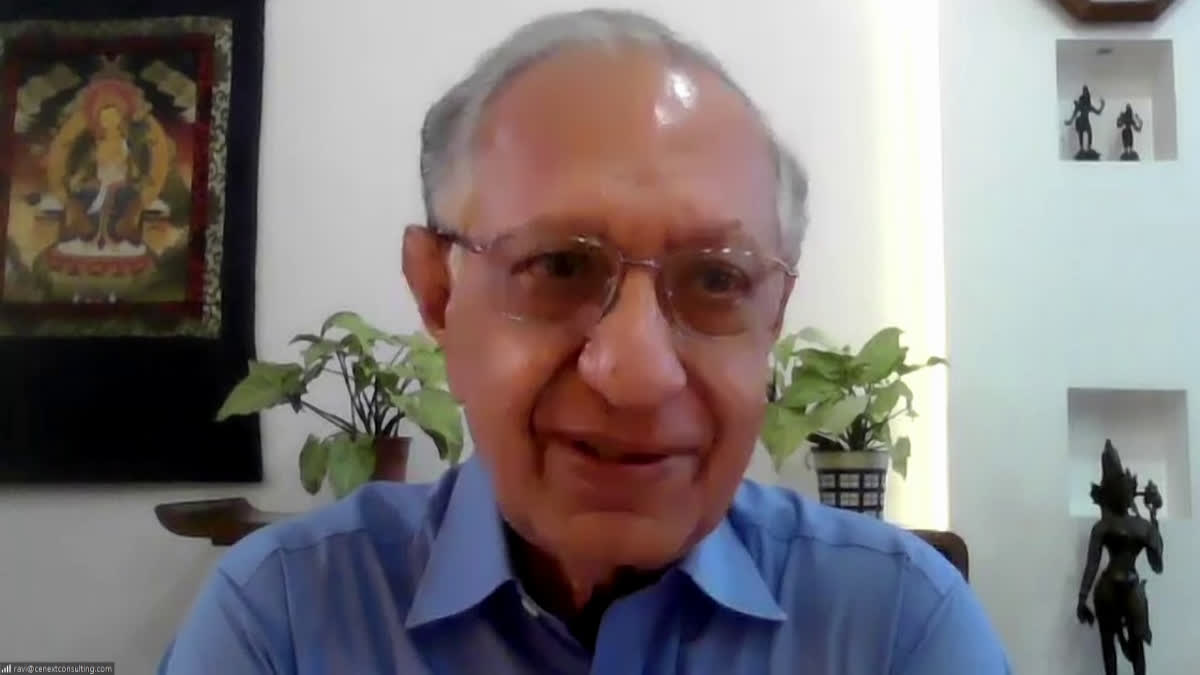New Delhi:In his book Capitalism to Peopleism, published by Simon and Schuster, Ravi Chaudhry, founder of CeNext Consulting and former chairman of Tata Group companies, explores how to create an economic system that works for everyone.
He argues that a surge-up development structure is needed rather than mere incremental tweaks and that this can be achieved through systemic transformation. He also believes that good performance can only be sustained through ethical leadership, transparent governance, and responsible entrepreneurship.
Chaudhry opens the book by addressing a critical issue: the persistent lack of responsible leadership that has long been accepted by both leaders and the led.
However, recent events, especially in the wake of COVID-19, have disrupted this complacency. These upheavals have not only shaken the world but have also sparked a new awareness among people. For many leaders in business, politics, and society, there’s a growing realisation of how fragile their positions are in the face of unexpected challenges. This shift marks a turning point, as leaders and citizens alike begin to grapple with the implications of these changes and what they mean for the future.
He also notes that there are decades when nothing happens, and then there are weeks when decades happen. He writes that since 2020, we have collectively experienced a series of such periods. It is worth reflecting on how something that did not exist until 2020—the COVID-19 virus — acquired the inconceivable power to humble the entire might of the global economy, valued at approximately $85 trillion.
Nothing futurists could have imagined prepared humanity for such an overwhelming series of events that left a significant majority of the seven and a half billion people on Earth feeling hapless and helpless for an extended period.
According to Chaudhry, the world is currently traversing a watershed moment — a definitive turning point in history that will completely change the future trajectory of the human race. This moment serves as a divider in time and space, beyond which the things that mattered until now will never be the same again. It is a time when history ceases to determine our future. Usually, watershed moments are recognised in hindsight; for instance, the gradual transition from the hunter-gatherer economy to the agricultural economy, followed by the industrial economy, the information economy, and eventually the knowledge economy.
Concept of Peopleism
In this book, Ravi Chaudhry discusses the core concept of Peopleism. He writes that Peopleism is a way of governance that restores citizenship to every individual by democratising democracy. It does so by extending the same rights and privileges to all people, diligently practicing transparent equity in opportunity and genuine equality before the law.
The system demands exemplary integrity from its leaders and rigidly adheres to the spirit and discipline of the sovereign constitution, which are sacred. It does not entitle the majority to act as they please; instead, it focuses on all individuals, whether in the majority or the minority.
Peopleism is based on the premise that good governance in society emerges not from the acquisition of authority by a few, but from the capacity of all individuals to resist authority when it is abused. This non-negotiable feature must be embedded in a nation's DNA by educating the masses about their rights and their inherent capacity to regulate and control authority.
Chaudhry also asserts that, aside from a few rare exceptions, throughout history and across the world, the masses have invariably been more virtuous than their rulers. The problem today is not so much the wrongdoings of a few who rule, but the silence of the majority who suffer. There are billions of outstanding individuals worldwide who symbolize a tangible part of goodness.
He argues that it is time for them to break their silence and proclaim their goodness—not with pride, but with humility—and to be the anchors who encourage others to pursue the path of transforming their destinies.
Things will not change unless we take charge of our own future, he asserts.
